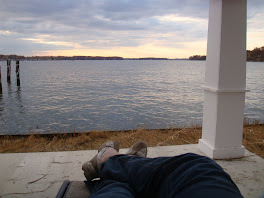Successful house hunting requires a good real estate agent, and a good real estate agent is probably not going to be a friend or family member, a friend of a friend, or the husband, wife, or other relative of a friend. Unless you're really lucky, those people will not be at the top end of the profession. Lots of people have a real estate license because they've taken the required classes and paid the annual fee, but that doesn't mean they're good at it. You want a real estate agent who is truly a professional. That's someone who has done it for a living for at least three years, not just dabbled in it part-time.
Many house hunters wind up with the real estate agent who answers the phone when they call to ask about a house that's listed in the newspaper. They go with the agent to see the house, the agent offers to show them other houses, and that's the way a business relationship involving hundreds--or at least tens--of thousands of dollars starts. That person might never have sold a house before, might have no clue about the area the person wants to buy in, and might not have even bought a house of their own before, but if a buyer decides to use that person as an agent, the agent will be in a position to fail to show the buyer an appropriate selection of houses, neglect to follow up on the buyer's interests in a timely manner, have no knowledge of the neighborhood the house is in, and cost the buyer thousands of dollars in the negotiating process.
I suggest two options for finding a quality real estate agent. The first is to do a little research on the Internet and find out which agents are making the most money and which have the largest number of sales under their belt in the last couple of years. Some agents specialize as buyer's agents, so their sales statistics will be focused less on the number of houses they listed and more on the number of people they worked with to buy a house. The second method is to talk to friends and colleagues about the agents they used when buying a house. Once someone has some experience with an agent, you will know that agent's strengths and weaknesses--for example, if the agent takes a day or so to return a customer's phone call, that's a sign of a bad agent--and friends and colleagues are likely to tell you these things.
With either option, you should interview the agent, dump him/her quickly if you're not happy with them for whatever reason (there are plenty more out there), and be careful what you sign--some buyer's agents insist on a contract that will commit you to them for a number of months. If you're convinced that signing an agreement will increase the person's loyalty to you as opposed to the seller, then go for it, but you can do it on your terms--two months instead of six, for example.
It might seem a bit mean to avoid giving your business to someone just starting out, especially if they are a friend or a family member. After all, you'd be willing to go to a brand new doctor, right? If you answered yes, that probably means that you were thinking, yeah, a brand new doctor just out of med school would know all the latest science on diseases and medications and all of the new diagnostic techniques. But real estate is much different. Knowledge in real estate means knowledge of neighborhoods, good working relations with fellow agents, and experience on nailing down a deal--stuff that can't be taught in a generic real estate class. A house probably will be your biggest purchase ever, but as they say, it's your money.
Thursday, December 11, 2008
Subscribe to:
Post Comments (Atom)







No comments:
Post a Comment